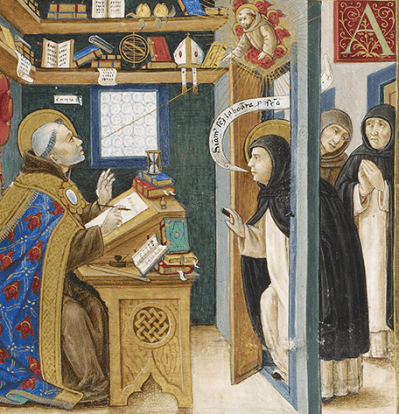… dogmatics offers a means of producing a portrait of the economy of grace, and of humankind and its activities in that economy, free from anxieties about foundations and therefore at liberty to devote itself to the descriptive task with Christian alertness, charity and joy.[1]
Christian Dogmatics — the church’s orderly understanding of scripture and articulation of doctrine in the light of Christ and their coherence in him.[2]
If the Church is going to do Church theology, what both Webster and Torrance, respectively, are signaling above, is of the upmost importance to grasp. When Christians do theology, by definition, we aren’t first doing apologetics. That is to say, the Christian, as a disciple of the Lord Jesus Christ, is already assured of their Master’s reality; they aren’t trying to prove His existence and reality prior to speaking about Him. Indeed, the Christian, as Torrance rightly presses, is doing their theological work in ‘light of Christ.’
Too often in evangelical theology (inclusive of Post Reformed orthodox theology) apologetics becomes normative for the rest of the theological task. Following someone like Thomas Aquinas in the Prima Pars of his Summa Theologiae, evangelicals/Reformed get caught in the snare of reassuring their readers that God’s existence is a reality, and that His reality is given credence by the philosophical prolix they offer up through their respective wits and machinations. But as Webster rightly underscores this creates an anxiety, indeed it starts with an anxiety, that ostensibly can only be laid to rest after the respective theologian assuages it with their virtuoso capacity to essentially “speak God” for God; that is before Deus dixit, ‘God has spoken’ for Himself in His living Logos for the world, Jesus Christ.
We are to come boldly to the throne of God’s grace in time of need; this is the genuine Christian way of doing theology. One of moment-by-moment dependence on the Word of God. Waiting expectantly for God to speak, afresh anew, through the vibrant and glorified vocal cords of the risen Christ; the Father’s Son seated next to Him at His Right Hand by the Holy Spirit. The Christian theologian is in a constant dialogue with the living and triune God. They are praying without ceasing, as they encounter the risen and ascended Christ throughout the pages of canonical Scripture. The Christian’s existence, in this way, is one where they are “at liberty to devote itself to the descriptive task with Christian alertness, charity and joy.” Most evangelical theology, whether it be of the scholastic or analytic sort is not done within this type of organic frame of con-versation between God and her people in the vicarious humanity of Jesus Christ. As such there is a failure to make genuine contact with the center of God’s life for the world; and thus, it becomes impossible to have a genuine knowledge of the living God as we don’t go directly to His exegesis for us in the bosom of the Father (cf. Jn 1.18).
Let’s be lively Christians rather than pedantic ones caught up in the web of our own abstract wits. Let’s be concrete theologians who do theology from the wood of the crucified and risen and ascended and coming, Jesus Christ. There is wisdom in this way; that is the way of the cross. There is God’s wisdom in this way, even if others consider this way foolish and weak. Be a theologian of the cross where we are nourished by the broken body and shed blood of Jesus Christ, rather than by empty platitudes by those genuflecting on Mt. Olympus to a god of actus purus (‘pure being’).
[1] John Webster, Holy Scripture: A Dogmatic Sketch (Cambridge: Cambridge University press, 2003).
[2] Thomas F. Torrance, Incarnation: The Person and Life of Christ.

